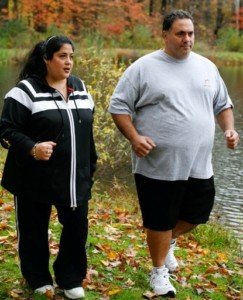There are certain exercises and a certain WAY to work out that will give you the best prehab for your body to prepare for major surgery.
So let’s look at it this way:
Even the most devoted gym rat could end up under the knife due to an unexpected diagnosis or accident.
How well can intense strength training and vigorous cardio exercise prepare the body for the trauma of surgery?
It’s common sense to know that the more physically fit a person is, prior to undergoing invasive surgery, the less likely there will be serious complications.
“Yes, a hard workout is a stressful event that can help a person’s body cope with future stress,” says Carolyn Dean, MD, ND; Medical Advisory Board Member of the non-profit Nutritional Magnesium Association.
Dr. Dean, a medical doctor and naturopath, adds that “many people who undergo surgery, for the most part, are already ill and will not be able to engage in heavy exercise.
“Also, one-half to one-quarter of surgeries are emergency procedures and not elective.”
Hmmm, that raises a riveting question:
Why would a person who slams their body at the gym on a regular basis need invasive surgery in the first place?
Well, even the most physically fit trainee could end up on the operating table due to a vehicular or sporting accident or bullet wound.
Secondly, though strenuous exercise goes a very long way at lowering the risk of disease, there’s no 100 percent guarantee of prevention.
Surprise diagnoses do happen, but all of that exercise is never in vain.
For example, the mountain runner who lifts weights, but mysteriously develops colon cancer, is more likely to breeze through the surgery, than if this individual were a couch potato.
Every time you work out, your body gets damaged and traumatized.
What happens post-workout? The repair process kicks in. This happens optimally when you get adequate nourishment, sleep and rest in between workouts.
Over time, your body becomes proficient at recovering from trauma. It gets lots of practice at recouping and replenishing from the injury and stress incurred by hardcore workouts.
So if you ever undergo major surgery, your body will “think” it’s another gym workout!
Your body already has an idea of what to do following this trauma, thanks to all your gym sessions; your body will go to work at healing.
The stress of surgery and the stress of hard exercise involve the same physiological systems in the body.
The trained body, following surgery, is less likely to respond with complications such as a blood clot, cardiac arrest, stroke or renal failure, among others.
The untrained body, however, doesn’t know what to make of the trauma from surgery. It’s at a loss. It has no concept of repair and recovery mode. It panics.
This is the patient who, despite a highly skilled surgical and post-op team, suffers some kind of major setback or complication, and/or the road to full recovery is long and bumpy.
If you’ve been struggling to adhere to a workout regimen, perhaps reminding yourself that you’re preparing for a possible invasive surgery one day will jumpstart your motivation. The preparation is sometimes referred to as prehab.
A prehab mindset is key. You may think you’ll never need major surgery, but remember, unexpected medical conditions can strike people who consistently train hard, and serious accidents do happen to the fittest.
Dr. Dean points out a very overlooked element in all of this: Working out causes mineral loss, especially magnesium.
“So, if this is not addressed before surgery, you can actually have a worse outcome because the heart absolutely needs to be saturated with magnesium when it’s under the massive stress of surgery,” she explains.
“Add to that the drain on magnesium by the drugs used in surgery. I recommend my patients take magnesium every day and increase their magnesium intake with magnesium citrate powder before any stressful event.”
WOMBATS for Prehab
This is an acronym devised by Dr. Raymond Rocco Monto, an orthopedic surgeon from Nantucket Cottage Hospital, MA.
Weight. “One of the most critical things you can do before surgery (if your BMI is 30 or over) is to get your weight down as much as possible,” says Dr. Monto.
“This helps with diminishing stress on your heart, lungs, muscles and joints. Can’t run or do heavy exercise? No problem, watch your diet and add walking or stationary bike use 20 minutes a day in the three weeks prior to surgery.”

Rudd Center
Surgical preparation via exercise need not be only aerobic. If you’re facing knee replacement surgery, for example, you can really crank up your body’s resilience to physical stress by lifting weights while lying and seated: chest and shoulder presses, and pulling movements for the back and arms.

An 8-12 rep max of these compound resistance exercises, with one minute between sets, will help shave off excess body fat while improving the body’s durability.
Outlook. “Prepare yourself mentally for your surgery by visualizing your surgery and recovery,” says Dr. Monto.
Medication. Make sure your surgeon knows of all your medications and also non-pharmaceutical supplements.
Bad habits. In the weeks leading up to surgery, cut out vices like drinking, smoking and recreational drugs. “They can wreak havoc with your liver and kidneys trying to process and eliminate all the anesthetic drugs you will receive at surgery.”
Timing. “Don’t schedule your elective surgery unless you have sufficient time blocked out in your busy life to devout your full effort and focus on recovering.”
Strength. Dr. Monto says, “This is the most important issue. Surgery is very stressful on your body. Getting as strong as you can before your surgery will make your recovery easier and faster.”
The best time to get as strong as possible is before you even need surgery.
Think “prehab” to kick up your motivation.
Best exercises include the deadlift, squat, bench press, overhead press, bent-over dumbbell row, chin-up, sled work, tire flip, hill dash, parking lot sprints (or any HIIT mode) and hybrid movements such as the squat-to-overhead press.
 Dr. Monto’s expertise is in sports medicine, and reconstructive surgery of the knees and shoulders.
Dr. Monto’s expertise is in sports medicine, and reconstructive surgery of the knees and shoulders.

Dr. Dean, in practice for 35+ years and author of “The Magnesium Miracle,” is also a naturopath, nutritionist, herbalist, acupuncturist, lecturer and consultant.
 Lorra Garrick has been covering medical, fitness and cybersecurity topics for many years, having written thousands of articles for print magazines and websites, including as a ghostwriter. She’s also a former ACE-certified personal trainer.
Lorra Garrick has been covering medical, fitness and cybersecurity topics for many years, having written thousands of articles for print magazines and websites, including as a ghostwriter. She’s also a former ACE-certified personal trainer.
.










































